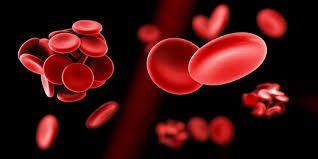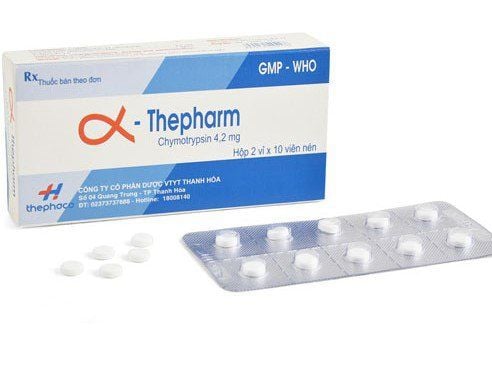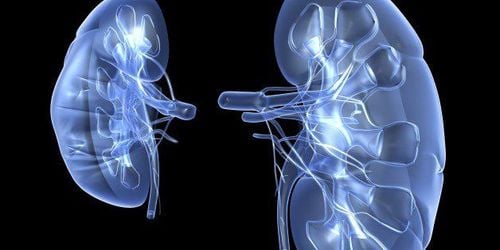This is an automatically translated article.
When using anticoagulants in patients with chronic kidney disease, it may cause some risks to the patient's health such as increasing the risk of stroke or may lead to vascular calcification. special note.
1. Why should anticoagulation be used with caution in patients with chronic kidney disease?
For patients with chronic kidney disease, there will be 2 risks at the same time, that is, the risk of thrombosis and the associated high risk of bleeding. Therefore, treatment with antithrombotic drugs will not be the same for people with normal kidney function, which in these patients can work well but can also cause side effects.
Usually, people with chronic kidney disease are at risk for thrombosis, thereby increasing the incidence of cardiovascular disease and deep vein thrombosis. Complications of arterial thrombosis include:
Cerebrovascular disease; Myocardial infarction and peripheral artery disease; Venous thrombosis increases the risk of deep vein thrombosis and pulmonary embolism or thrombosis from peripheral and central catheters; Venous thrombosis is also associated with a risk associated with albuminuria, which is a common complication in patients with chronic kidney disease. However, there have been many studies and guidelines for anticoagulation with the aim of preventing stroke in patients with AF with normal renal function, but in AF patients with normal renal function. If renal function is reduced, anticoagulation should be treated with caution. Only about one-third of hemodialysis patients with atrial fibrillation are treated with the anticoagulant warfarin for stroke prevention. The advent of oral anticoagulants offers therapeutic advantages because they can enhance benefits and significantly reduce side effects.

Thông thường, những người bệnh thận mạn tính sẽ nguy cơ bị dẫn đến huyết khối
2. Anticoagulation in patients with chronic kidney disease
2.1 Oral anticoagulants Vitamin K antagonists Anticoagulants are widely used in clinical practice, however, in patients with chronic kidney disease, caution should be exercised when taking warfarin. Some studies recommend anticoagulation for all stages of CKD, while others recommend anticoagulation up to stage 4 of CKD.
However, the response to anticoagulation in CKD patients is related to diet, intravascular volume, changes in drug metabolism, drug interactions, vitamin K deficiency, and compliance. treatment of the patient.
Direct oral anticoagulants Direct oral anticoagulation is a better option because it has many benefits, however, for patients with renal impairment, the dose needs to be adjusted according to each GFR level.
Guidelines recommend DOACs for patients with mild to moderate chronic kidney disease. In the absence of evidence of severe renal impairment and in patients with end-stage renal disease, dose adjustments are usually estimated, based on small pharmacokinetic or observational studies.
Therefore, through knowledge of pharmacokinetics, the FDA authorizes a dose of 75 mg twice daily (BID) of dabigatran for patients with a GFR of 15–29 ml/min. As for patients on hemodialysis, except for stage 5 chronic kidney disease but not on dialysis, the FDA allows apixaban 5 mg BID, even though the pharmacokinetics and label instructions recommend its use. dose of 2.5 mg BID to maintain consistent concentrations.
A particular side effect is kidney disease related - DOACs, the mechanism of which is blockage of the renal tubule by blood debris, as well as activation of protease receptor 1, which can cause renal function impairment when Use anticoagulants if there is a decrease in GFR ≥ 20%. Therefore, the use of DOACs requires close monitoring and monitoring of renal function for patients.
2.2. Heparin Anticoagulants Heparin drugs are prescribed based on the underlying medical condition of the patient, so heparin is not differentiated. However, dose adjustment is necessary in patients with advanced CKD and is usually based on practice guidelines. Specifically
Unfractionated Heparin (UFH): This type is used because the anticoagulant effect lasts only 1-4 hours after discontinuation of the drug, even in patients at high bleeding risk and the drug also has a short duration. short half-life. In addition, unfractionated heparin has an antidote (protamine) used to reverse the effects of UFH. However, it is necessary to reduce the initial standard dose by approximately one third and subsequent dose titration based on aPTT10. Low-molecular-weight heparins (LMWHs): These are used because of their predictable pharmacokinetics, so they are easy to practice since no close monitoring is required. However, because the drug is partially eliminated by the kidneys, it is necessary to adjust the dose when using the drug in patients with stage 4 and 5 chronic kidney disease. When adjusting the dose, it is necessary to monitor the distal inhibitory concentration, the purpose of the treatment. This monitoring is to avoid sub-threshold doses as well as to achieve the most optimal therapeutic dose. Usually, Enoxaparin is used at a maximum dose of 1mg/kg QD for severe chronic kidney disease.

Thuốc kháng đông được sử dụng rộng rãi trên lâm sàng, tuy nhiên với bệnh nhân bệnh thận mạn thì cần lưu ý
3. Risk of anticoagulation in patients with chronic kidney disease
When using anticoagulants in patients with chronic kidney disease, there may be some risks that affect the patient's health. These risks include:
Anticoagulation in patients with chronic kidney disease may increase the risk of stroke: According to studies on the effectiveness of the anticoagulant Warfarin in hemodialysis patients with limited atrial fibrillation For example, warfarin may increase the risk of stroke. Warfarin can lead to vascular calcification: The reason why Warfarin can lead to vascular calcification is that in a hyperphosphataemic environment such as renal failure, vascular smooth muscle cells will have the ability to bone formation similar to osteoblasts. They will initiate and initiate the regulation of vascular calcification and Matrix GLA protein (MGP) will inhibit the above calcification process. However, the activation of Matrix GLA protein requires vitamin K. Thus, the anticoagulant Warfarin, a vitamin K antagonist, may be a factor in vascular calcification. Arterial calcification in hemodialysis patients accounts for 1-4% and the mortality rate after 12 months is very high, this rate accounts for 45%. Therefore, when using anticoagulants in patients with chronic kidney disease, special attention should be paid to closely monitoring the status of kidney function to limit dangerous side effects as above.
Early detection of CKD plays an important role in the treatment outcome, so the diagnosis has special significance. Renal function scintigraphy is routinely applied at the Nuclear Medicine Unit, Vinmec International General Hospital. This is a technique to evaluate kidney function using modern high-precision measuring instruments and radioactive tracer. With good quality images, functional kidney scintigraphy has become an indispensable technique to probe kidney function, contributing to improving the efficiency of diagnosis and treatment of kidney and urinary tract diseases. In particular, the scintigraphy shows the function of each kidney individually, helping to make safe treatment decisions.
Currently, Vinmec International General Hospital uses the SPECT/CT Discovery NM/CT 670 Pro equipment system, with the most modern 16-series CTs of the world's leading medical equipment company GE Healthcare (USA), for high-quality images, helping to diagnose diseases that need to be investigated early. In particular, Vinmec's team of experienced and well-trained doctors at home and abroad will directly advise and provide maximum support to customers during the shooting process, even for customers who are foreigner.
Please dial HOTLINE for more information or register for an appointment HERE. Download MyVinmec app to make appointments faster and to manage your bookings easily.













